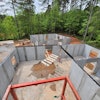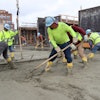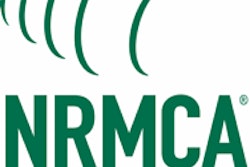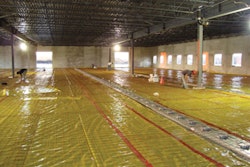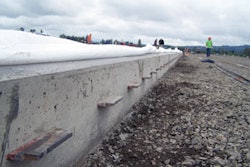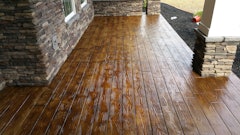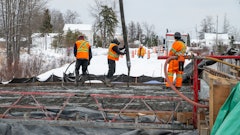SILVER SPRING, MD - The National Ready Mixed Concrete Association has joined a host of concrete-focused industry organizations in recognizing the importance of a study released earlier this month by the Massachusetts Institute of Technology (MIT) that will help set a new standard in life-cycle assessment (LCA) modeling. The studies, which are part of an ongoing research initiative at the MIT Concrete Sustainability Hub (CSH), will quantify the cradle-to-grave environmental costs of paving and building materials, and will ultimately result in the most comprehensive LCA model produced to date. MIT is scheduled to follow these preliminary research findings in a 2011 study that will examine the economic costs associated with providing a comprehensive analysis of the total costs of building and paving materials.
NRMCA producer members welcomed the results of the research, pointing to the value attached to having such a prestigious, non-partisan institution such as MIT undertake a project long sought by the ready mix industry: the independent and irrefutable validation of concrete's advantages over other building materials within the growing sustainability movement.
"The concrete industry is very energized by the initial findings coming out of the CSH at MIT," said NRMCA Chairman of the Board Tim Becken of Cemstone Products, Mendota Heights, MN. "The industry's efforts in the sustainable development arena have exploded in recent years and this new research dovetails well with many of the existing projects and programs offered by NRMCA and our industry partners."
Those projects and programs include a recent joint effort announced a few months ago by NRMCA in conjunction with the American Concrete Pavement Association to spearhead a program that communicates the features and benefits of concrete for streets and local roads. The associations collaborated to produce a range of promotional material and resources that are available to members and regional, state and local groups interested in boosting their share of an important market.
Another major NRMCA-driven focal point is the 2011 International Concrete Sustainability Conference scheduled for August just outside Boston in Cambridge, MA, also the location of MIT. This 6th annual conference will provide learning and networking opportunities on the latest advances, technical knowledge, continuing research, tools and solutions for sustainable concrete manufacturing and construction. Researchers, academics, students, engineers, architects, contractors, concrete producers, public works officials, material suppliers and concrete industry professionals will present their findings.
In addition to in-person events such as the sustainability conference, NRMCA has also created a wide variety of online tools to help educate its members. In March, a detailed online course called Life-Cycle Assessment of Concrete Structures will be offered. The course consists of 4 live Webinars aimed at building owners, contractors, architects, engineers, specifiers and consumers who are demanding more efficient and environmentally friendly projects and products. This course provides detailed instruction on how LCA can be used to assess the environmental performance of concrete structures, including buildings and pavements. A review of new and existing research comparing the environmental life-cycle performance of concrete and competing building materials will be presented.
The MIT CSH was co-founded by the Portland Cement Association and RMC Research & Education Foundation. The MIT interim reports on the LCA of pavements and the LCA of buildings are available from the Foundation's website at www.rmc-foundation.org. Additional information about the work taking place at the MIT CSH may be found at http://web.mit.edu/cshub.

